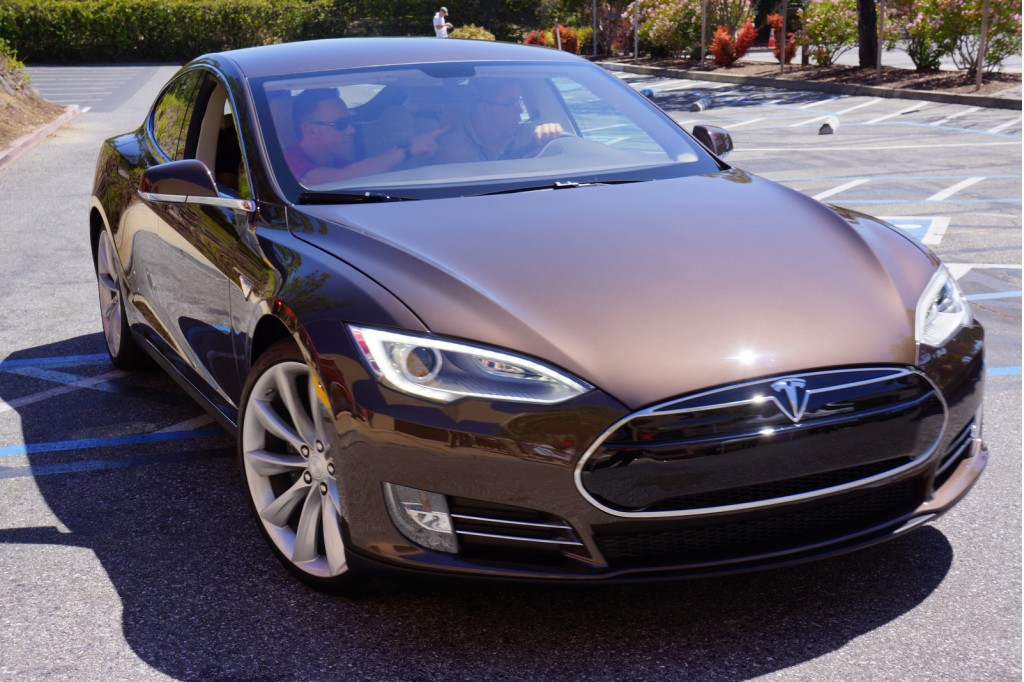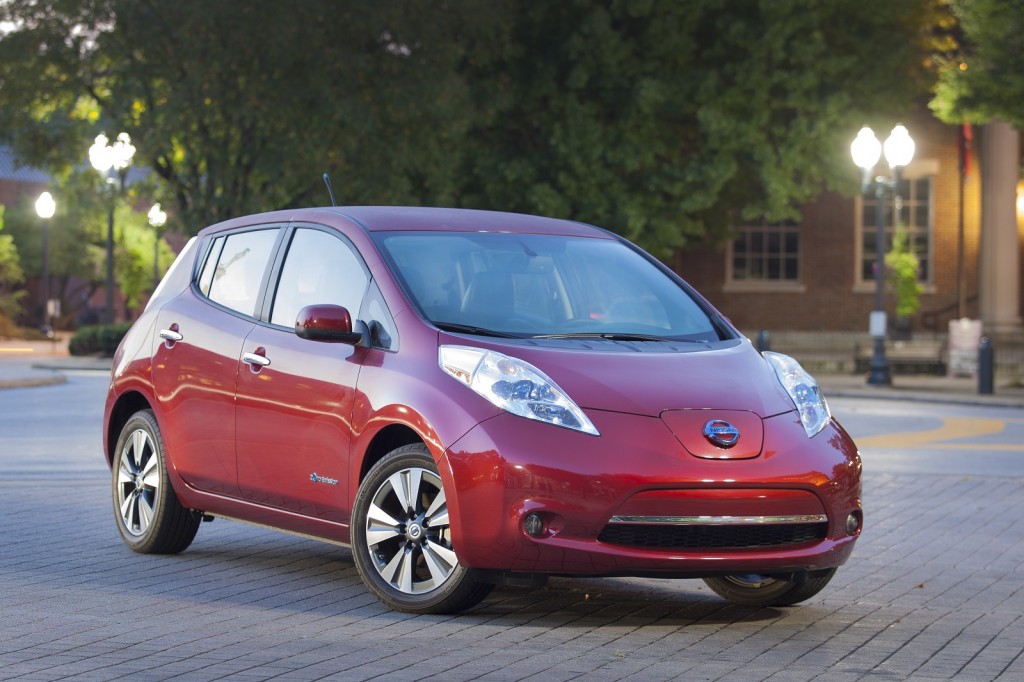For Georgia electric-car owners, things aren't looking too peachy this week.
Legislation proposed by Representative Chuck Martin last Thursday night would end the $5,000 electric-vehicle tax credit by April 1, the Atlanta Business Chronicle reports.

Tesla Model S
The credit--among the highest offered by any state--applies to new electric-car purchases or leases, and can add to the $7,500 income-tax credit offered by the Federal government.
Martin told the Business Chronicle that he supports the adoption of electric cars, but doesn't feel it should be subsidized with taxpayer money.
Electric-car advocates believe the tax credit is crucial to keeping up demand for the vehicles in the Peach State.
Electric cars accounted for just 1.1 percent of new-car registrations in Georgia between January and November 2013, but the state was still ranked fourth in U.S. electric-car registrations for the year.
DON'T MISS: Ohio Dealers Renew Assault Against Tesla Motors Sales
Nissan: incentives are good
Nissan has said that the Atlanta region is its single best area for Leaf sales in some recent months. Asked for a comment on the proposed legislation, the company issued a relatively pro forma statement of support for such incentives.

2014 Nissan Leaf
“Nissan supports incentives, such as the one in Georgia, as a way to increase consideration for electric cars among a broader group of consumers," the company said today in a statement.
"Nissan Leaf sales are now growing rapidly in Georgia thanks to owners spreading the word about the car’s lower total cost of ownership compared to gas-powered cars," it continued, "as well as access to HOV and HOT lanes in Atlanta and Leaf’s great driving experience.”
California-based electric-car advocate Chelsea Sexton was considerably blunter about the potential impact of the legislation.
"Since the 1990s, Georgia has been among the states most supportive of electric cars," she wrote. "Atlanta has grown into one of the leading markets over the last several months, in large part because of this $5,000 incentive, which is higher than most other states."
"However, that success is still in its infancy. To kill it abruptly, just as consumer awareness is increasing and other products are beginning to come to market, risks a 'whiplash' effect similar to that in California, where incentives seem constantly imperiled for lack of continuous funding."
Modifications appropriate
What happens then, she notes, is that "plug-in buyers end up holding off, or trying to time their purchases based on the latest news about when rebates will get re-funded."

2014 Nissan Leaf
That's frustrating to buyers, she said, but even more so for dealers and automakers who try to maintain a steady inventory, who must "jockey around this artificial ebb and flow in the sales pace."
Sexton said, however, that reforms to the Georgia incentive law would be appropriate. It should include plug-in hybrids--but at a lower level than fully electrified vehicles.
She suggested a cap on the sticker price of eligible cars, "to address the social justice issue of publicly subsidizing luxury vehicles."
ALSO SEE: 2015 Ford F-150 Aluminum Pickup Body Points Towards Fuel-Economy Gains
Abrupt ending counterproductive
And incentives should be phased out--eventually--but with fair warning. "The three years proposed by the EV Club of the South is a nice compromise," she said.
"But to yank the incentive altogether, just when the market is starting to come to life--and other manufacturers are encouraged to bring in new products--is counterproductive for Georgia, as well as for electric cars at large," she concluded.
Opponents of the legislation are currently negotiating with Martin, and hope--at the very least--to get the proposed April 1 deadline pushed back.
Electric-car owners in Georgia are encouraged to contact their representatives in the Georgia General Assembly to voice their support for the tax credit.
Incentives no, but Tesla yes?
Interestingly, Martin also sponsored legislation that would help Tesla Motors sell more cars in Georgia.
The electric-car company has faced legislative battles in many states--most recently Ohio--because of its company-owned stores and online sales, which bypass the standard franchised-dealer model.
Tesla has been allowed to sell up to 150 cars a year in Georgia under an exemption to the state's auto-dealer regulations. The new legislation would raise that cap to 1,500 sales. Without the tax credit, however, it's possible that Tesla may find fewer customers.
The Georgia Automotive Dealers Association is reportedly reviewing that sales legislation, so Georgia could become the site of two legislative battles over electric cars.
[hat tip: Tom Moloughney]
_______________________________________________












